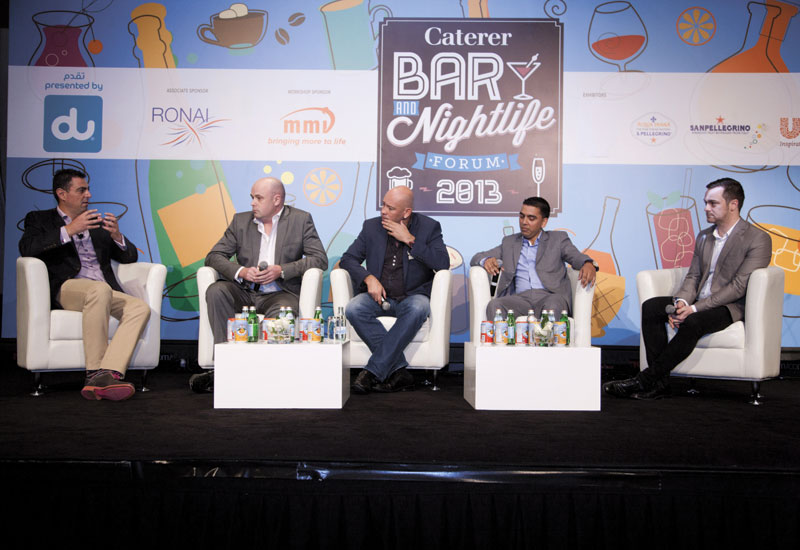Nearly 75 members of the bar and nightlife industry gathered to participate in the second annual Caterer Middle East Bar & Nightlife Forum, held on October 7, 2013, at the InterContinental Hotel, Dubai Festival City. It was themed around creating new customer experiences, and changing the face of the nightlife industry in the region, and comprised a series of panel discussions.
Throughout the day, a variety of industry issues were tackled by the bar, operations and outlet managers who discussed the opportunities for growth and debated key challenges facing the industry, with input from the panel’s peers in the audience trickling in.
SURVIVING THE EVOLUTION OF THE INDUSTRY

| Advertisement |
The first panel, titled ‘Surviving the evolution of the UAE nightlife scene’, delved into the competitive nature of the local market and what it takes for bar and nightclub operators to achieve longevity.
Moderated by Media One Hotel director of operations Luke James, the panel included The VIP Room general manager Nikolas Pazvadis, and Whitelabel operations manager Hayan Abou Assali.
It’s not all local concepts that are sprouting in the region, and this was tackled head-on. “International brands have come to Dubai and have made the market more competitive here,” said Assali. “A lot of changes have happened here, and it’s multi-cultural. People are looking for better service and quality.”
Pazvadis said: “The market is growing. We have seen an 8% increase in population in Dubai in the last 18 months. It’s not about fighting for a little market share; you just have to maintain consistency in what you offer.”
Assali asserted that venues in the Middle East “are surviving with consistency of service, quality and entertainment”. Pazvadis said the great thing about Dubai is that people appreciate a point of difference, including staff members, equipment used, international DJs and acts.
He added that there is a market for different concepts like warehouse parties hosted by Media One Hotel, and said there are concepts the UAE nightlife scene has not yet witnessed. James met with a chorus of agreement from the crowd at this point by saying he thought that there’s too much of the same in Dubai’s nightlife scene.
Door policies and reservation policies have often been subjects of contention, with many nightlife venues charging for entry and more. Pazvadis was against the practice and said: “I haven’t heard anyone charging for entry for a very long time. The last time I heard anyone charging for entry was in London. It’s horrific.”
Assali said while Cavalli Club has free entrance, its door policy is a useful way of controlling entry into the venue. James admitted his venues have been known to turn people away who are “over-dressed”. He said it’s amazing how “dressed up people get these days”. Pazvadis said it is because there is a perception of Dubai nightlife that you have to get dressed up and there has to be a spotlight on at all times.
An audience question raised the issue of whether people are coming to Dubai just for its nightlife — does nightlife tourism exist in this region? Pazvadis replied in the affirmative and said 60% of the VIP Rooms clientele are jet-setters, with the remaining living in the city. Assali said people do come to Cavalli Club because of its international brand status.
Guaranteeing ROI on conceptual design was another point of discussion. Pazvadis said there are two things needed for this: design that encourages staff efficiency and visually stimulating attention to detail.
Training was briefly touched upon where Assali said the turnover rate in the nightlife sector was very high, and more than anything seen in other parts of the hospitality industry.









 Search our database of more than 2,700 industry companies
Search our database of more than 2,700 industry companies









